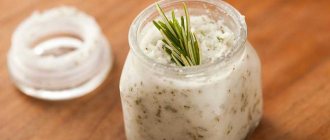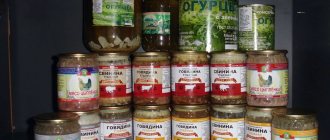People began to use eggs for food a very long time ago. This product was first appreciated by the people of India. Eating eggs in this country began back in 2.5 thousand years BC. Somewhat later, the Romans, and then residents of other European countries, began to eat them.
In Russian cuisine, eggs have long been used exclusively as a separate dish. Moreover, they prepared only on certain days. In our country, eggs began to be added to complex dishes no earlier than in the 19th century. Today this product is, of course, extremely popular in Russia. After all, eggs actually have many beneficial properties. However, they can show their best qualities only if they are stored correctly. Stale eggs, of course, should not be eaten under any circumstances. This product can cause very serious poisoning.
Temperature
It is believed that the optimal temperature for storing eggs is -2 - +20 °C. Under these conditions, this product will remain fresh for some time before consumption. Of course, like any other food, the shelf life of eggs directly depends on the ambient temperature. The lower it is, the longer you can avoid eating a store-bought product of this variety.
According to the requirements of GOST 31654-2012, table eggs can be stored:
- at temperatures from -2 to 0 °C no more than 90 days;
- at temperatures from 0 to +20 °C - maximum 25 days.
For incubation
Without compromising their quality, hatching eggs can be stored for 5-6 days under appropriate conditions.
The optimal temperature for storing eggs is +8-12°C , with a relative humidity of 75-80%. Such conditions are created in an egg warehouse - in a special room for storing eggs. Good ventilation is important, but there should be no drafts.
The position of the eggs during storage is also of great importance - they should be laid with the blunt end up. If eggs are stored for more than 5 days, especially in a horizontal position, they should be rotated 90° once a day.
In the table below you can see how the shelf life of eggs affects the hatching of young animals:
| Shelf life of eggs (days) | Percentage of young animals to the number of fertilized eggs | ||
| chickens | ducklings | goslings | |
| 5 | 91,6 | 85,7 | 79,8 |
| 10 | 82,5 | 80,0 | 72,7 |
| 15 | 70,3 | 73,5 | 53,7 |
| 20 | 23,5 | 47,2 | 32,5 |
| 25 | 15,0 | 6,0 | |
Read more about how to store eggs for incubation here.
Egg incubation is a process that requires strict adherence to certain conditions. We have prepared detailed materials on this topic for you. Read about storage temperature, the incubation process at home and the mode of this process.
Video about storing hatching eggs:
Chickens are not the only poultry whose chicks can be bred independently in a country house or farm. We bring to your attention a series of interesting materials about the incubation of eggs of turkeys, peacocks, turkey ducks, guinea fowl, pheasants, geese, ducks, ostriches, quails, and musky ducks.
How long can you store in the refrigerator?
Almost every housewife has eggs in stock. And, of course, they are most often kept in the refrigerator. That is, in most cases, the temperature for storing eggs at home is +2-4 °C. Under such conditions, this product is able to maintain its freshness for a very long time. It is believed that you can keep eggs in the refrigerator for up to a month. In many cases, at this temperature they do not disappear even for 2-3 months.
To wash or not to wash eggs?
Most people answer this question positively, because these are basic hygiene rules. But in fact, you cannot wash eggs before storing them. Why? Because during this, the protective layer is washed off from them, which significantly extends the shelf life.
Eggs in their “natural” form are stored for a month or more, and cleanly washed eggs no more than 4-5 days.
But before using, the shells must be washed very thoroughly. Otherwise, there is a risk of salmonellosis infection. You don’t just need to rinse them under the tap, but wash them using a brush or sponge.
Can eggs be stored at room temperature?
Sometimes it happens that it is not possible to put eggs purchased or collected in the chicken coop in the refrigerator. After all, such equipment, for example, can break down or be filled with other products.
Eggs, like, for example, milk or meat, are not considered perishable food. Therefore, in the absence of a refrigerator, they can be kept for some time, for example, in a kitchen cabinet at room temperature. Storage of eggs under such conditions, according to regulations, is possible for 25 days. However, the air in the room, of course, should not warm up above 20 °C.
Thus, experts give a positive answer to the question of whether eggs can be stored outside of the refrigerator. But still, the air temperature in the room when using this method should not exceed +25 °C. At this temperature, this product can stay fresh for a couple of weeks. Warmer air in the room can cause the incubation period to begin. Embryos, for example, develop in fertilized eggs already at a temperature of +36 °C.
How to store it correctly?
Before storing fresh eggs, experts advise checking whether they are spoiled, because store and factory stamps, unfortunately, cannot always be trusted. There are several simple ways to check:
You will need a little warm water, regular table salt and one fresh chicken egg.
Prepare a saline solution and put it in there:
- lies on the bottom - the egg is fresh, produced less than a week ago;
- floated up with the blunt end up - older than a week;
- floats in the prepared solution - older than two weeks;
- if it surfaces , it is spoiled and cannot be eaten unless you want to risk your health.
You won’t be walking around with a salty solution in the store, so you can just shake the egg next to your ear. If no sounds are heard, then the product is fresh.
This is, of course, not a 100% guarantee of suitability, but together with other methods (check the markings on the shell, evaluate the storage conditions in the store) it may work.
The appearance, especially in closed boxes, is definitely worth evaluating; sometimes there are cracked or even cracked eggs. Most often they try to sell such a defect at a small discount. But it’s better not to take risks and buy products that are a little more expensive, but of better quality.
In a refrigerator
The duration of storage is affected by compliance with a few simple rules. By following them, you can increase the preservation several times, without losing taste.
The product can be used in the same way as fresh: for omelettes, various salads, meringues, cakes and other baked goods.
Rules:
- Do not place on the side door of the refrigerator. Despite the fact that many models are equipped with specialized compartments on the side. Due to temperature fluctuations when opening and closing the door, the shelf life of food is reduced. The ideal place is a Chilledroom chamber designed for vegetables and fruits.
- 2-4°C is the best storage temperature for fresh eggs ; raw eggs can remain intact for up to one and a half months.
- before putting them in the refrigerator ; this will shorten the shelf life of the eggs.
- Choose containers or stands with divisions (they usually come with the refrigerator and are located on the side door).
Eggs will be better preserved in a secure position in the refrigerator. They need to be laid with the sharp end down (1 piece per 1 cell).
The container should be made of plastic with a lid that closes tightly, this will eliminate exposure to other strong odors, such as onions, smoked meats and citrus fruits.
Eggs very quickly absorb foreign odors and this affects their taste and the taste of the products prepared from them, this is especially noticeable in omelettes. In general, it is recommended to use only fresh eggs.
Which end to store?
To preserve the freshness of eggs for a longer period of time, you need to place them in a container with the sharp end down, then the yolk mass will be located in the center.
At the blunt end, the shell contains more pores through which oxygen enters and carbon dioxide escapes, and there may also be bacteria. If you place the product with the blunt end down, the germs will rise to the top and can infect the egg from the inside.
Some housewives prefer to store fresh eggs on their side and turn them over periodically, so that the yolk will not stick to the wall and will not be damaged when the shell is broken before cooking.
This is very important for those who need to separate the white from the yolk before cooking or for those who like fried eggs with a solid, slightly runny yolk.
To understand which method is right for you, try leaving one egg sideways in the refrigerator, the other with the sharp tip down. After a week or two, compare the results.
To make the experiment “clean”, use products of the same category, or better yet, purchased at the same time from the same tray.
Important
The above dates, of course, can only be valid for recently collected eggs. A store-bought product at home, of course, will have less shelf life. After all, quite a lot of time can pass from the assembly of such eggs to the moment they reach the counter. In addition, this product often remains in the supermarkets themselves for quite a long time.
At room temperature, eggs are, of course, best stored away from various heating appliances. For this product, you should find the coolest and preferably darkest place in your apartment. Most often, eggs in the house are kept in kitchen cabinet drawers or in the pantry.
When stored for a long time in the refrigerator or at room temperature, even if the GOST requirements for terms are met, this product still changes its qualities somewhat over time. Eggs are considered fresh only for 9 days after collection. If desired, such a product can be boiled either soft-boiled or in a bag. If the eggs were stored in the refrigerator or in the room for more than 9 days, it is still better to cook them only hard-boiled. This way you can eliminate the risk of poisoning.
Useful tips
It is better to boil eggs in the quantity that the family needs at one time. The raw product is actually a living organism, and therefore does not lose its beneficial properties much longer than the thermally processed one.
The shell is covered with a thin cuticle, which protects the embryo from infection by pathogens and drying out. To preserve it as long as possible, there is no need to wash the surface of the product before storing it in the refrigerator or pantry.
When placing delicacies in the refrigerator, it is better not to use the door, since the temperature and humidity in this compartment regularly change when opened. It is better to place the products in a separate container with a closing lid; this will prevent the contents from absorbing foreign odors through the pores of the shell, condensation and rapid spoilage.
If there is a need to take boiled eggs on the road, they are packaged in foil, plastic containers, or wax paper. It is not advisable to use a plastic bag as a container; in this case, the food will spoil faster. It is impossible to clean the contents from the shell in advance.
Spoiled food changes color and smell. The white becomes yellowish or bluish, the yolk darkens, becomes dry and hard. If there is the slightest doubt about the quality of the eggs, they will need to be disposed of, since poisoning from protein-rich delicacies is among the most dangerous.
How do fresh eggs differ from those collected long ago?
It is therefore clear how eggs should be stored. It is best to keep this product in the refrigerator at a temperature of 0 to +8 ° C. But how can you distinguish fresh eggs from those laid long ago? It's actually not too difficult to do this.
In order to find out when the eggs were collected at the poultry farm, you just need to look at the markings. Stamps with the date of production at such enterprises are placed on each egg.
Also, to determine the freshness of this product, you can look at it through an ovoscope. Many villagers who breed chickens and incubate chickens have such a device. If the yolk in a translucent egg is in the middle, it means it is fresh and can be eaten either soft-boiled or in a bag.
If under the ovoscope it is clear that there are dark spots in the yolk next to the white, this means that the egg has been lying somewhere for at least a week after it was laid. This product can also be eaten, but preferably only hard-boiled. Stale chicken eggs will not be visible under an ovoscope. Of course, it’s not worth eating such a product.
You can also immerse an egg in a glass of water to determine freshness. If it sinks and falls to the bottom, it means it was demolished just a few days ago. If the egg touches the bottom only with the sharp end, its “age” is about a week. Of course, such a product can also be considered fresh. If the egg sinks only to the middle of the glass, it is 2-3 weeks old and can still be eaten. If it floats on the surface, it means it is rotten and all that remains is to throw it away.
Other storage methods
There are many other household ways to extend the life of eggs. They will come in handy before the holidays, when the refrigerator is full of other products.
Traditional methods of storing eggs:
- Keep the product in a solution of potassium permanganate. The solution must be saturated. Dip the eggs here for a few seconds, then, without rinsing off the water, wipe the shells with a dry cloth. This way you can store eggs for 2-3 weeks under normal living conditions.
- Place in sweet water. For 1 liter of water you will need 1 kg of sugar. Dissolve the sand and boil the water. Soak the eggs in the syrup for a few minutes, then wipe and place in a container. The shelf life will last for several days.
- A very complex but effective method. Dip the eggs in liquid paraffin or wax. And then place it in a solution of liquid lime. It is prepared from the ratio: for 10 liters you need half a kilo of quicklime. Stir it well and pour it into a glass or ceramic container. Place eggs there. This is an ancient, rustic way to store the product when there were no refrigerators. Eggs can be stored this way for up to 6 months.
Different ways of keeping eggs will help you always have a fresh product, which is necessary for a variety of dishes.
Boiled product
Of course, many housewives are interested in how to properly store boiled eggs. In its raw form, therefore, even at room temperature, such a product can remain fresh for a long time. Once boiled, eggs lose this property to some extent. After heat treatment, it is still advisable to store such food only in the refrigerator. Under room conditions, eggs in a whole shell will remain fresh for about 3 days (at a temperature not exceeding +20 ° C).
In the refrigerator at a temperature of +2 °C to +4 °C, such a boiled product can be kept for up to a week. At the same time, eggs can be stored in airtight containers under the same conditions for up to 14 days.
The exception in this case is soft-boiled eggs. They spoil much faster than hard-cooked ones. In room conditions, such eggs can remain for no longer than 24 hours until they lose freshness. They can be stored in the refrigerator for a maximum of 2 days. That is why at Easter it is recommended to boil eggs exclusively soft-boiled. After all, the Easter eggs will have to lie on a plate with Easter cake for quite a long time. Soft-boiled eggs under such conditions will most likely disappear. In any case, it will be unsafe to eat them.
Hard-boiled Easter eggs, by the way, can be stored a little longer than regular boiled ones. The fact is that the paint used to decorate Easter eggs clogs the pores in the shell. As a result, microorganisms that contribute to the deterioration of the contents of the egg cannot penetrate inside it longer. Easter eggs can be stored for up to 4 days.
If necessary, a similar method can be used to keep regular boiled eggs fresh longer. To extend their shelf life, their shells simply need to be lubricated with vegetable oil.
Industrial egg storage
As mentioned above, eggs are a product with a relatively short shelf life. In today's market conditions, it is simply necessary to increase this period.
On an industrial scale, the following methods are used for this::
- storage at low temperatures and refrigerated;
- in lime mortar;
- in thin synthetic films;
- using special oil coating.
All of the above methods require certain conditions to be met.:
- Low humidity level.
- High-quality ventilation.
- Constant air temperature from 8 to 10 degrees.
- Temperature control (sharp fluctuations leading to condensation are unacceptable).
The most common way to ensure such conditions is to use refrigeration chambers.
How to store eggs in refrigerators:
- Pack in cardboard boxes or wooden boxes.
- Cool in a special chamber, gradually lowering the temperature.
- After this, you can store it at a temperature of minus 1-2 degrees and a humidity of 75-80 percent.
In industrial chicken farming conditions, eggs are usually subjected to an ovoscopy procedure. What is it and what is it for, read in this article.
In order to breed chickens, you need not only to know how to store eggs, but also how the incubation process itself works and how long it lasts. You can find out about this on our website.
How long do quail eggs last?
This product is also quite popular among Russian consumers. Quail eggs are more expensive than chicken eggs. However, they contain more vitamins and substances beneficial to the human body. Quail eggs, like chicken eggs, can be stored for quite a long time.
At temperatures from 0 to +8 °C this product remains fresh for up to 30 days. These are the GOST standards for quail eggs. However, practice shows that this product can retain its freshness much longer. Thus, it is considered quite safe for quail eggs to be stored at temperatures from 0 to +4 °C in the refrigerator for up to 2 months.
What State Standards say
Storing chicken eggs according to GOST has its own characteristics. This depends primarily on the type of product and applies to table and dietary eggs.
The species does not depend on the breed of chickens and other factors. It changes depending on how many days have passed since the demolition. During the first week, the egg is considered dietary because it contains more nutrients and can even be consumed fresh. And then it goes into the canteen category. In this case, its shelf life is extended to 25-30 days.
There are markings on the eggs. The letter D stands for dietary, and C for table.
Egg products
GOST standards, of course, must be observed for such a semi-finished product. Dry egg products should be stored:
- at temperatures up to +20 °C - maximum 6 months;
- up to +4 °C - no more than 24 months.
According to the rules, liquid egg products are stored:
- at temperatures up to +4 °C - maximum 24 hours;
- up to -18 °C - no more than 15 months;
- up to -12 °C - maximum 10 months.
Precautionary measures
Fans of chicken eggs should remember that boiled eggs should not be overused. Nutritionists and Russian doctors advise eating no more than 270 eggs per year, respectively, no more than 4-6 eggs per week.
People suffering from gastrointestinal diseases need to reduce the amount of eggs consumed. This will avoid exacerbations of the disease.
However, it should be noted that chicken eggs are a very healthy product, and they should be completely abandoned only in cases of individual intolerance or allergies.
- Chicken eggs are an allergen that can cause a severe reaction. It is advisable not to use for citizens with such diseases or to purchase the product only from trusted farmers who breed domestic chickens.
- Yolks contain a large amount of cholesterol, but scientists are still arguing among themselves whether it is harmful or beneficial. Experts recommend not to risk your health and not eat the entire product. For example, if there are 4 eggs in a scrambled egg, then it is advisable not to eat two of the yolks. But with confidence, we can say that with moderate consumption, the product will not increase cholesterol levels in the body.
How to check the freshness of eggs
How to determine the freshness of an egg using water (photo source: Yandex.Images)
A unique test will help you avoid poisoning and salmonellosis, as well as ensure the quality of the product used. Before storing or eating eggs, you should check them for freshness. There are several methods for this.
Method 1: test in salt solution
Place a raw egg in a jar of saline solution (1 tablespoon per liter). Fresh ones will lie on their side at the bottom or rise slightly above the liquid level. If the egg floats or hangs in the solution, it means it is rotten.
Method 2: test in a frying pan
Crack the egg over a bowl to assess the condition of the white and yolk. The old product will not look cohesive, will become less compact and will spread over the surface. Loss of freshness is indicated by a watery consistency, a flat, easily bursting yolk, free floating of the yolk, and a transparent white (a bad product does not have a smoky tint to the white).
Method 3: by sound
Shake the egg against your ear and listen to the noise the liquid makes. If you don't hear anything, the product is fresh. If the sound of squelching is distinct, then most likely the product has spoiled - it is better not to eat it.
Determining the freshness of an egg by sound (photo source: Yandex.Pictures)
Method 4: according to cleaning speed
A fresh egg is difficult to peel because the shell sticks to the white. Conversely, a stale product is easy to clean, because it holds less well in the shell. Freshness can also be determined by the condition of the boiled egg - if the yolk has a greenish rim, it is better to discard it, as well as if there are blood spots.
Preparing to cook
Before use, eggs must be washed with soap and a sponge. On their surface there may be particles of bird droppings, which serve as a breeding ground for salmonellosis. If this is not done, when the shell is broken, bacteria can easily penetrate inside, which can cause an acute food infection.
Eggs must be washed before cooking (Photo: Pixabay.com)
But there is no need to wash the shells in advance. If you do this immediately after purchase, the product will be stored significantly less due to the removal of the protective film from its surface. A thoroughly washed egg placed on the refrigerator door can spoil within five days.
People's secrets
Before the invention of refrigerators, folk secrets and tricks helped preserve eggs for a long time . Many of them are relevant:
- The eggs are placed in a bag and lowered into a pan with boiling water, after 5 seconds they are taken out and cooled, put in a cold place. They should lie with their pointed noses down.
- Place in a wooden box and sprinkle generously with coarse salt. Cover with newspaper and store for up to five weeks.
- Lubricate with Vaseline and put in a box. Store in a cool place for four weeks.











